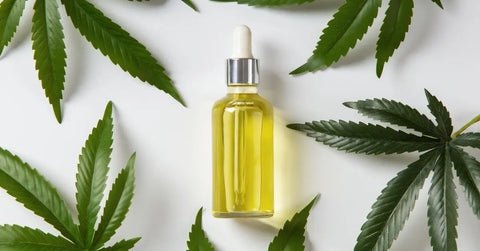
Bud to Bud Combat: Ashwagandha vs. Hemp Oil—Let the Herbal Games Begin!
Is Ashwagandha Like Weed? Let’s Clear the Confusion.Ashwagandha and hemp-derived products like CBD oil often get compared, but they couldn’t be more different in their origins and mechanisms. While both are praised for their ability to reduce stress, improve sleep, and support overall well-being, they achieve these results in unique ways. Ashwagandha, an ancient adaptogen rooted in Ayurvedic medicine, helps the body manage stress by balancing cortisol and supporting the neuroendocrine system. On the other hand, hemp products like CBD oil interact with your body’s endocannabinoid system to influence mood, pain, and inflammation.
Rather than asking which is “better,” the real question might be: How can these powerful, natural remedies complement each other? Whether you’re navigating the pressures of modern life, seeking cognitive clarity, or soothing physical discomfort, understanding these herbs’ strengths can empower you to make the best choice for your wellness journey. As always, a consultation with a healthcare provider ensures these ancient solutions work in harmony with your body’s unique needs.
What is Ashwagandha?
Ashwagandha, an evergreen shrub native to tropical and subtropical regions, is traditionally used as an adaptogen in Ayurvedic and Unani medicine systems. Its rich phytochemicals, including withanolides and alkaloids, may contribute to its effects. Clinical trials have shown that ashwagandha extracts can reduce stress and anxiety, sleeplessness, fatigue, and serum cortisol levels. Studies have also shown positive effects on perceived stress. Ashwagandha extracts also improve sleep efficiency and wakefulness.
Ashwagandha vs. Hemp Oil (Origins)
Ashwagandha, technically known as Withania somnifera, is an ancient medicinal herb from India and North Africa. Its roots and berries are used for therapeutic purposes. Ashwagandha contains bioactive chemicals called withanolides, alkaloids, and sitoindosides, which are thought to contribute to its adaptogenic and antioxidant properties.

Hemp oil, commonly known as hemp seed oil, is made from hemp plant seeds (Cannabis sativa). Unlike CBD oil, which is produced from flowers and leaves, hemp oil does not contain substantial amounts of cannabinoids like THC or CBD. Instead, it contains vital fatty acids such as omega-3 and omega-6, vitamins, minerals, and antioxidants.
Ashwagandha vs. Hemp Oil (Potential Health Benefits)
CBD and ashwagandha are natural compounds with potential health advantages; they have different sources, chemical compositions, and modes of action. CBD is a chemical derived from the cannabis plant, primarily hemp, and is known to interact with the body's endocannabinoid system. Ashwagandha is an ancient medical herb derived from the root of the Withania somnifera plant. It is categorised as an adaptogen that can help the body adapt to stress.
Ashwagandha:
- Stress Reduction: Numerous studies have shown that ashwagandha can reduce stress and anxiety by modifying the hypothalamic-pituitary-adrenal (HPA) axis and cortisol levels.
- Cognitive Function: Studies show that Ashwagandha improves cognitive function, memory, and focus, potentially aiding people suffering from neurodegenerative diseases like Alzheimer's.
- Immune Support: Ashwagandha's immunomodulatory qualities may boost immunological function, increasing infection resistance and overall health.
Hemp Oil:
- Skin Health: Hemp oil has moisturising and anti-inflammatory effects, making it a popular skincare ingredient. It may help treat eczema, psoriasis, and acne.
- Heart Health: Hemp oil contains omega-3 and omega-6 fatty acids, associated with cardiovascular health advantages such as less inflammation, improved lipid profiles, and lower blood pressure.
- Nutritional Support: Hemp oil contains a high concentration of key elements, including vitamins (such as vitamin E) and minerals (such as magnesium and potassium), making it an excellent addition to a healthy diet.

Ashwagandha vs. Hemp Oil (Research Evidence)
Ashwagandha: Several clinical trials and animal research have looked into the effectiveness of ashwagandha in various health issues. A randomised controlled study published in the Indian Journal of Psychological Medicine discovered that ashwagandha administration significantly lowered stress and anxiety levels in participants compared to placebo.
Hemp Oil: Research into the hemp oil health benefits is ongoing. A study published in the Journal of Dermatological Treatment found that topical hemp seed oil enhanced skin hydration and suppleness in those with atopic dermatitis. In addition, research published in the Journal of Nutritional Biochemistry reveals that hemp seed oil has cardiovascular health benefits.
While CBD and ashwagandha may have similarities, such as the ability to promote relaxation and lower stress, they operate through different body pathways. CBD interacts with cannabinoid receptors in the endocannabinoid system, which regulates mood, hunger, pain perception, and immunological function. In contrast, Ashwagandha operates primarily by moderating the body's stress response and encouraging equilibrium in the neuroendocrine system.
What are the Benefits of CBD Oil with Ashwagandha?
CBD oil and ashwagandha are linked to various potential health advantages, although they may target different aspects of health and wellness.
Benefits of CBD Oil:
CBD oil might relieve pain from various conditions, like chronic pain, arthritis, and neuropathic pain. Let’s look at some benefits of CBD oil:
- CBD oil has been proven to have anxiolytic and antidepressant properties, which may help to alleviate symptoms of anxiety, depression, and other mood disorders.
- CBD oil may have neuroprotective characteristics, which could help treat neurological diseases like epilepsy, multiple sclerosis, and Parkinson's disease.
- CBD oil contains anti-inflammatory qualities and may aid with inflammation reduction and oxidative stress, potentially benefiting illnesses such as inflammatory bowel disease and rheumatoid arthritis.
Benefits of Ashwagandha:
- Stress Reduction: Ashwagandha is known for its adaptogenic characteristics, which help the body cope with stress and promote relaxation without drowsiness.
- Improved Sleep: Ashwagandha may help improve the quality and duration of sleep, making it useful for people who suffer from insomnia or sleep problems.
- Cognitive Function: Ashwagandha has been demonstrated to improve cognitive function and memory recall, which may aid people experiencing cognitive decline or memory impairment.
- Immunity booster: Ashwagandha has immunomodulatory properties that may improve immunological function, benefiting overall health and well-being.
Which is better, ashwagandha or CBD oil?
Ashwagandha: While ashwagandha is usually regarded as safe for most people when used correctly, it may interact with some drugs or medical conditions. Before beginning Ashwagandha supplementation, contact a healthcare provider, especially if you are pregnant, breastfeeding, or have an autoimmune problem.
Hemp oil is generally well-accepted and safe to consume. Individuals with hemp or cannabis allergies should use caution. Furthermore, choosing high-quality organic hemp oil reduces the possibility of pesticide or heavy metal contamination.
The choice between ashwagandha and CBD oil is based on personal preferences, health goals, and the illness being treated. Both have distinct benefits and impacts on specific individuals or conditions.
Conclusion:
In the quest for holistic well-being, ashwagandha and CBD oil offer unique pathways to a healthier, more balanced life. While their mechanisms differ, they share a common goal: helping you manage stress, enhance sleep, and support your body’s natural resilience. Whether you choose the time-tested adaptogenic power of ashwagandha, the calming benefits of CBD oil, or perhaps a combination of both, the potential for a more vibrant and peaceful you are within reach. By understanding these natural remedies and how they fit into your wellness journey, you’re taking an empowering step toward greater health and harmony. Trust in the wisdom of nature, listen to your body, and embrace the possibilities that lie ahead.
Frequently Asked Questions
Which is better, Ashwagandha or CBD oil?
The efficacy of ashwagandha or CBD oil depends on individual demands and health circumstances. Ashwagandha is good for stress reduction, better sleep, and cognitive enhancement, while CBD oil is used for pain treatment, anxiety reduction, and anti-inflammatory properties.
Can I take ashwagandha and CBD oil together?
Combining ashwagandha with CBD oil may provide additional benefits for stress alleviation and overall health. However, consult with a healthcare expert to establish their safety and efficacy.
Are there any adverse effects from ashwagandha and CBD oil?
Although ashwagandha and CBD oil are generally well accepted, some people may develop adverse effects such as gastrointestinal pain, sleepiness, or drug interactions. It is best to begin with low doses and monitor for adverse reactions.
Can ashwagandha and CBD oil be used for the same purposes?
While ashwagandha and CBD oil may offer overlapping benefits such as stress reduction and relaxation, they work through different mechanisms in the body. Ashwagandha primarily modulates the stress response and promotes balance in the neuroendocrine system, while CBD interacts with cannabinoid receptors in the endocannabinoid system to regulate various physiological processes.
